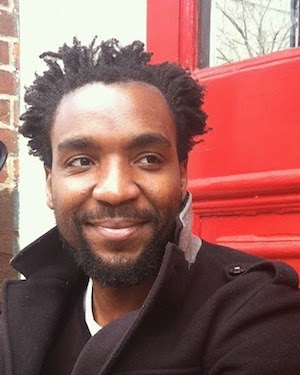
18 Jun Interview with Phillip Howze, playwright of “abominable”
Welcome to the 37th Annual Bay Area Playwrights Festival! I’m Natasha, one of the interns at this year’s festival, and I will be posting a series of interviews with the playwrights in the next few weeks leading up to the festival from our incredibly talented playwrights.
The plays have been chosen, the artistic team is being finalized, and everyone at Playwrights Foundation is working very hard to make this year’s festival one of the best yet. Keep checking back with our blog to stay updated on backstage scoops and information on our engaging special events throughout the festival.
I was fortunate to interview the brilliant Phillip Howze whose play abominable is really worth checking out.
Natasha Brown: Thank you for letting me interview you. Let’s kick things off! First question, is your style distinct or does it change depending on the play?
Phillip Howze: With each play I’m becoming more aware of getting out of the way of the play and letting it be what it wants to be. The play is shapeless for a very long time. It takes a while to figure it out. Every play is different and it takes on the features and qualities that it intends itself to be.
NB: That makes sense. Are there any interesting stories about how this play came into being?

Phillip Howze
PH: I wrote the first draft of this play a couple of years ago, very quickly. It started as an exercise with a great professor of mine at Yale, Paula Vogel. She challenged us to write a play with a certain prompt and ingredients. Actually I’m not very good with authority so my first thought was “no!”, but eventually the idea became kind of freeing once I went with it. The draft changed dramatically over time. I’m really happy to work on it at the festival in its current state because I think that I’ve gotten to what is actually at the heart of this play.
NB: And we’re happy to have you! Whilst reading your play, the hole reminded me of the digging of the hole in Suzan-Lori Park’s The America Play. I was excited to see the imagery again. The tone of this play, however, is different. What are you hoping to accomplish with the hole in your play?
PH: Of course Suzan-Lori is someone I love and admire. I think she describes that hole as a kind of metaphor for the history of America. Recently, in Florida all of these crazy sinkholes were opening up all over the place. My parents live there and I visit them and often think about that geological phenomenon. The hole in this play is likely more literal. But it is ambiguous whether the husband is digging himself into it or out of it. Of course anyone who sees it may project whatever they want onto it. I encourage that.
NB: You play around with the use of sound a lot in the play, whether it is through the blackout transitions or words being distorted in some way. The writing is also very lyrical. What do you want the audience to experience whilst watching your play in terms of the soundscapes?
PH: As a writer, I’m interested in the visual and aural landscape too. There is a lot in this play about listening versus hearing – the idea of something going in one ear and out the other. How does that information change on its route? How does your imagination change it? Everything goes through a filter and that filter is how we are interpreting or making meaning of the things we are engaging in. In part, I think the heightened speech and sound in the play reflects that disruption.
NB: I agree. This play really highlights the economic strife of the family in very bleak and despairing ways. However, I’ve heard that you actually see the play more like a comedy. Could you tell me more about this?
PH: It’s strange because the story, though dark and eerie, is also incredibly funny. In life, we laugh to get through the hard moments. And I think that this family laughs a lot with each other, despite their circumstance. There might be a tragic framework, yes, but the characters don’t know that. They’re trying to have a good time together. For the spectator looking at it, it might seem abject but that’s only one half of the story. We can choose to laugh with them. In a lot of Shakespeare’s tragedies, there are flits of comedy throughout. A similar combination of light and dark are operating in this play.
NB: Last question: whose work would you recommend for emerging writers to study?
PH: It’s important to read as much as you can. Read everything you can get your hands on. Never stop reading. Playwrights who have been meaningful to me over the years have been many, but especially the Classical writers. The Greeks. I love a lot of Shakespeare’s plays. But go to witness a lot of theatre too, because it will motivate the work that you’re making and it’s always been an important thing to me to be part of the community in that way. Get involved. Bear witness to things that are happening around you. And read the newspaper. Trying to stay informed about the world is a very important part of being a writer.
NB: Thanks, Phillip!


No Comments